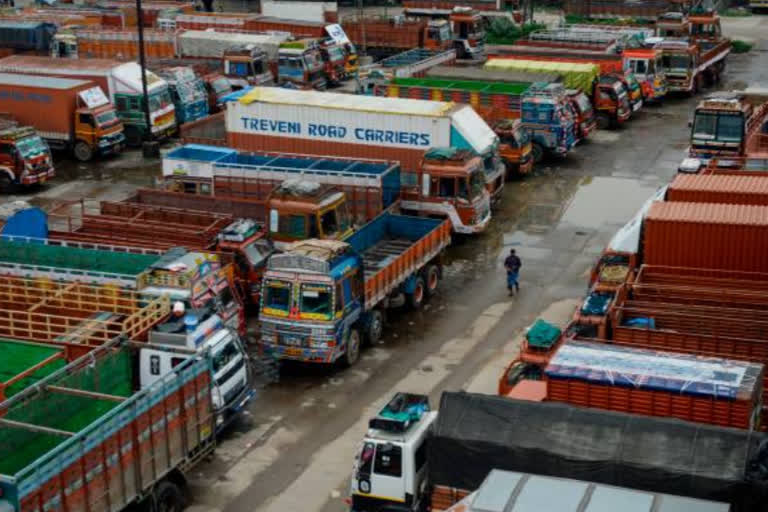New Delhi: Availability of workers at factories and trucks for transportation remain key challenges to meet demand for essential items during the lockdown due to coronavirus pandemic, according to FMCG majors ITC, Dabur India and Parle Products.
The companies, however, said the approvals for plant operations and transportation of goods have eased difficulties in movement of raw materials and finished products, assuring steady supply of essential items.
Addressing of local issues in many states that have hindered movement of goods would certainly help in kick-starting the functioning of the supply chain, they said.
"But, the key issue that still remains is the availability of manpower and workers to run these operations. With most workers either leaving for their hometowns or staying at home during the lockdown, it would be a challenge to ensure smooth functioning," Dabur India Executive Director (Operations) Shahrukh Khan told PTI.
Sharing similar experience, an ITC spokesperson said, "While we have progressively obtained permissions in some states, availability of trucks continues to be the biggest challenge at the moment. Interstate and local truck movement has been severely impacted together with the challenge of shortage of manpower in factories."
Expressing similar views, Parle Products Senior Senior Category Head Mayank Shah said, "The biggest challenge today is manpower... The new challenge facing the companies now is how to continue running their plants in absence of labour."
Read more: COVID-19: Know all about manufacturing and availability of PPE kits, N95 masks &
Most of the labours in manufacturing plant are migrant workers. With they moving back to native places, there is going to be a huge challenge, he added.
On the ability of companies to produce to meet demand, Shah said that with 50 per cent of workers allowed, production is being managed through shift systems.
"Quantum of production would go down substantially but the idea is to ensure that at least there is food available on the shelves and at no point in time there should be any panic in the market," he said adding that there would not be complete absence of food for 5-6 days, even if any shop runs out of stick it would be available the next day.
Commenting on how soon the situation is likely to stabilise, the ITC spokesperson said, "We believe it will take a few more days for the entire ecosystem and processes to be streamlined for movement of essential goods."
On the movement of goods, Khan said the situation has eased a bit with approvals for plant operations and movement of trucks coming in.
"These have eased some of the big bottlenecks that the industry was facing for movement of raw materials, packing materials and finished products. It would certainly help in kick-starting the functioning of the supply chain," Khan added.
When specifically asked about stock situation, the ITC spokesperson said, "In these trying times, it is critical to ensure adequate availability of essential food and hygiene products in the country. We have been working closely with state authorities and local administration to ensure that manufacturing and distribution activities continue uninterrupted with minimum people."
The company's effort is to ensure that consumers during these trying times are not inconvenienced on account of shortages and unavailability of essential products, the spokesperson added.
"We have redoubled our efforts to ensure a heightened level of precaution and have implemented strict protocols for safety, personal hygiene and sanitation in these select factories and for our salesmen and value chain partners," the ITC spokesperson added.
(PTI Report)



